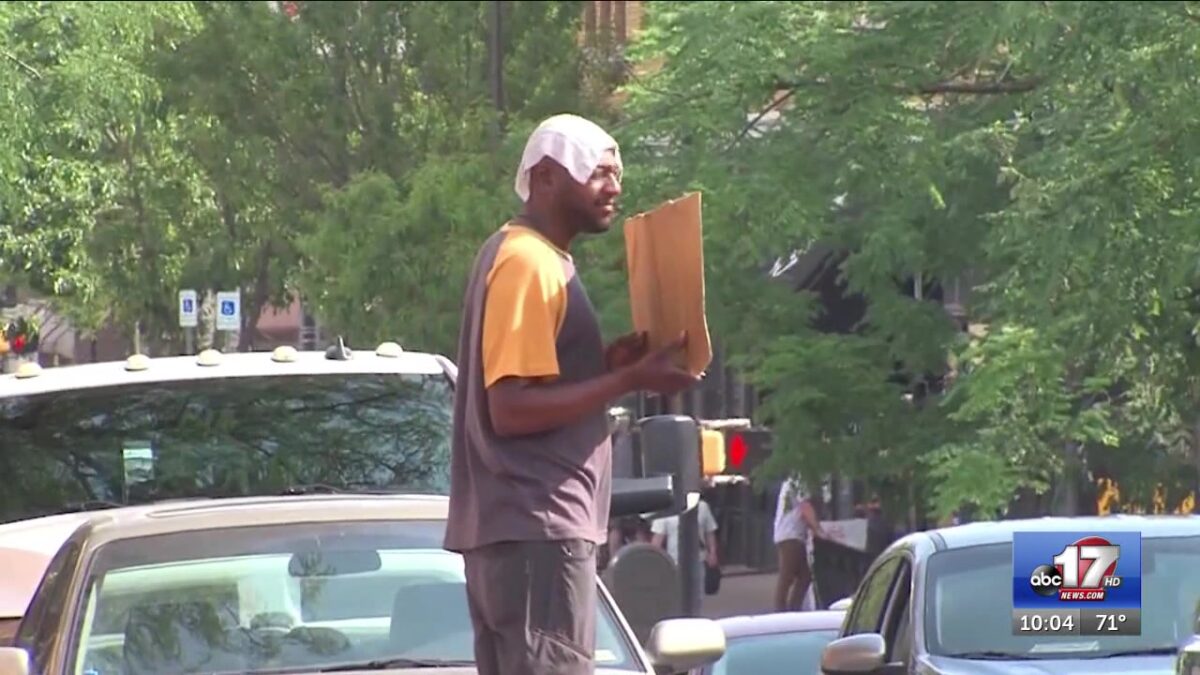Columbia moves closer to launching pilot program to help unhoused residents return home

Mitchell Kaminski
COLUMBIA, Mo. (KMIZ)
The City of Columbia agreed to amend its existing agreement with the transportation service First Last Mile to include the company in a pilot “ride home” program aimed at assisting members of the city’s homeless population.
The city inked a deal with First Last Mile in January 2024, using a portion of the $25.2 million it received through the American Rescue Plan Act, which was intended to mitigate the public health and economic effects of the COVID-19 pandemic. Part of the contract includes First Last Mile helping the homeless community get back and forth to work and other medical appointments.
The amendment, which was unanimously approved by the city council on Monday, will add First Last Mile as a transportation provider for the “ride home” initiative, but will not alter other terms of the original contract.
“We’re really looking at utilizing the most cost-efficient resource, and typically that’s a Greyhound. So then it’s really transportation from their location in Columbia to the bus station and then getting on the bus from that point on,” Columbia/Boone County Public Health and Human Services Director Rebecca Roesslet said. Other communities have been able to do this with some success, and Greyhound is the most affordable way to move individuals across a greater distance.”
The initiative stems from a suggestion made during a March 17 City Council meeting, when Ward 4 Councilman Nick Foster called for a transportation program to assist unhoused individuals trying to leave Columbia and reconnect with support systems—such as family, faith communities or specialized care—outside the city.
“I’ve seen this done in other communities. And in fact, there are organizations in town, some of our agencies, who work with homeless folks who do this kind of work. They just don’t have a dedicated fund for that,” Foster told ABC 17 News.
Stakeholder interviews and feedback from Columbia’s Public Health, fire and police departments revealed a growing trend of individuals experiencing homelessness often traveling to Columbia for medical or mental health services, but not being able to return to their home communities. The lack of return options often worsened the very challenges that brought them to Columbia in the first place.
“We are a health care hub for central Missouri. We know anecdotally a lot of individuals come to Columbia County for medical care and various other reasons,” Roesslet said. “ What we’re finding is that there is a challenge on occasion for individuals to return to their home community where they have this support to help them be successful in their lives.”
The growing number of unhoused individuals from outside Columbia is increasing demand for services and further straining the city’s already overburdened resources.
“Homelessness and the unsheltered in our community are a concern for a lot of people in the community. We saw this from the community survey, but we already knew this to be true, and it is a concern that we share. So that’s where it and that’s where it initially came from,” Foster said. “I think that one of the great things about this is it’s it can be an effective manner and a compassionate manner in which to help people become stable again.”
According to a June council memo, local nonprofits like Room at the Inn and Love Columbia assist about 50 people annually with transportation, typically via donated bus tickets costing $30–$300. However, none have dedicated funding and rely on donations or partner support. Similar limitations exist for other agencies and medical providers.
A model from Lawrence, Kansas, offers a potential blueprint. There, the city funds bus tickets for non-residents who commit to a return plan, helping reduce the strain on local services.
Columbia officials believe a similar effort could benefit both unhoused individuals and the city’s overwhelmed support system, though funding would be necessary to close the current service gap.
The city still has to hammer out several details so no launch date for the pilot has been set. However, Roesslet said it will be implemented, “it will be fast.”
“Initially, we’ll be working with our providers that serve the individuals who are experiencing homelessness. All the referrals will come through them. So this isn’t at the beginning stages, ”Roesslet said. “This is not something that would be opened up to the general public. We’re going to be working really closely with those that are already providing case management services to the vulnerable population, and then they’ll work with our social service agencies in the city or social services specialists within the city who work at the health department to arrange that transportation piece.”
ABC 17 reached out to First Last Mile.